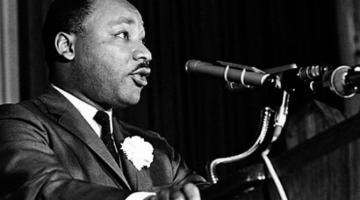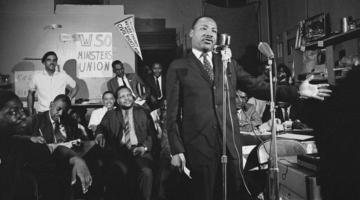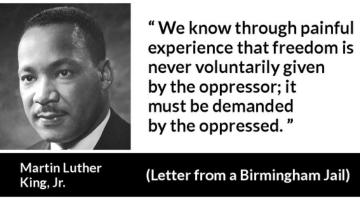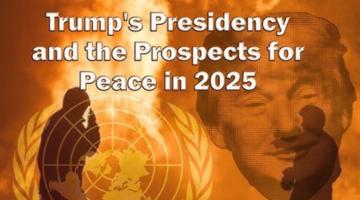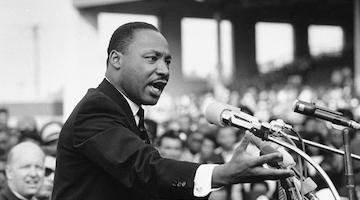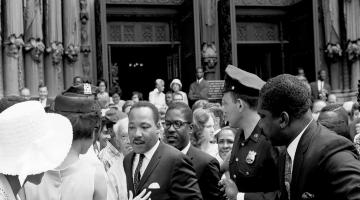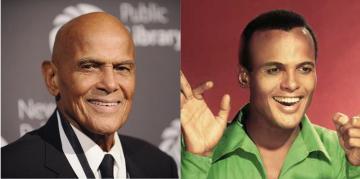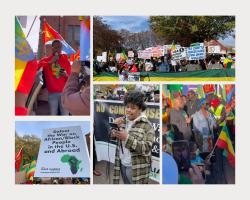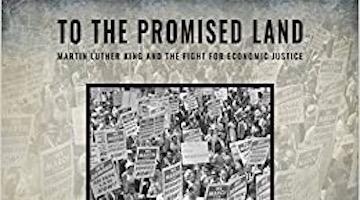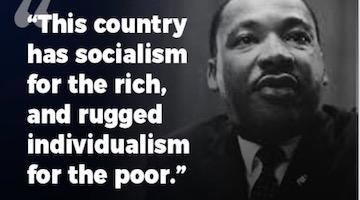Remember the Influence of Socialism on Martin Luther King Jr’s Legacy.
King believed humanity could achieve a “higher synthesis” that rose above the social relations of capitalism and communism.
“Black self-determination was seen by the ruling class as a great communist conspiracy.”
The annual celebration of Martin Luther King Jr.’s birthday is politically meaningless because it is defined by the very power structure that assassinated both his physical life and his radical legacy. To this day, King is remembered by most Americans as the “I Have a Dream” figure who sought peaceful coexistence with a racist power structure also known as the United States government. This narrative has not only benefitted the ruling class and the privileges of white Americans but also the Black misleadership class which utilizes King’s sanitized legacy as a cover of legitimacy for their political service to the bourgeoisie. It should come as no surprise, then, that the historical moment from which King’s work arose has also been distorted by the U.S. ruling class. While publications such as Teen Vogue and public intellectuals like Cornel West have brought attention to King’s anti-war and anti-capitalist history, fewer have analyzed the importance of socialism in shaping the trajectory of King’s politics.
King did not identify as a socialist in Marxian terms. By the end of his life, King was criticizing the triple evils of militarism, racism, and materialism. However, he didn’t see the communist movement led by the Soviet Union as the answer to Black America’s ills. Instead, King retained a moral and spiritual commitment to equality. He believed humanity could achieve a “higher synthesis” that rose above the social relations of capitalism and communism. The police occupation of poor Black communities at home and the U.S. military occupation of Vietnam abroad compelled King to demand an end to U.S. militarism and to organize the Poor People’s Campaign for economic justice.
“The Black misleadership class utilizes King’s sanitized legacy as a cover of legitimacy for their political service to the bourgeoisie.”
While King didn’t embrace communism, his politics were profoundly influenced by the struggle for socialism, domestically and abroad. Most bourgeois historians of the so-called “Civil Rights” era leave out the pesky fact that a war between socialism and capitalism was occurring simultaneously with the Black struggle against Jim Crow white supremacy in the U.S. mainland. Martin Luther King Jr. visited Ghana to celebrate the African nation’s independence from Britain in 1957 and met with its openly socialist leader, Kwame Nkrumah.National liberation movements throughout Africa and the Third World were receiving aid from the Soviet Union and China to win independence. On the opposite side, the U.S. was engaged in an all-out war on the socialists wherever they resided. This war began with the invasion of the Soviet Union in 1918 and included the use of a two nuclear bombs during World War II, the murder of millions in a military invasion of Korea, and the open threat to drop another nuclear bomb on China for its assistance to socialist resistance on the Korean Peninsula.
The U.S. ruling class was extremely concerned that the Black struggle to overturn Jim Crow in the U.S. mainland would seek alliances with the socialist, largely non-white movement abroad. This led King and the rest of the Black movement to become targets in the U.S. government’s anti-communist crusade. Black self-determination was seen by the ruling class as a great communist conspiracy that threatened to bring the socialist politics of the Soviet Union to the U.S.’ doorstep. Paul Robeson, W.E.B. Du Bois, Claudia Jones, and several other Black intellectuals and organizers were blacklisted as agents of Moscow and terrorized by the state for their refusal to align with the predations of American capitalism. The ruling class was so concerned about the influence of anti-colonial and socialist movements abroad that the State Department hired Jazz artists such as Louis Armstrong to travel to newly independent nations on the African continent to promote the U.S.’ so-called commitment to racial equality.
“King and the rest of the Black movement became targets in the U.S. government’s anti-communist crusade.”
COINTELPRO’s counterinsurgency warfare against communists and revolutionaries of all kinds really intensified at height of the Cold War in the 1950s, not in the 1960s and 1970s as commonly assumed. U.S. imperialism had every right to fear the influence of socialism. The Soviet Union, China, and Cuba all espoused internationalism as a critical aspect of their socialist projects. Paul Robeson famously remarked that he felt no racial prejudice during his trip to the Soviet Union. China provided asylum to Black activist Robert Williams in 1966. A real possibility existed for socialist countries and the Black liberation movement to develop internationalist relationships, much to the chagrin of the American Empire.
Contrary to the assumptions of former FBI chief J. Edgar Hoover, Black revolutionaries were not attracted to socialism because they were dupes of Moscow or culturally programmed to seek a “Black messiah.” The world socialist movement not only demonstrated to Black Americans and all oppressed peoples that white capitalist rule could be successfully overthrown but also that a new and more favorable system could replace it. Conditions for workers and peasants in the socialist bloc greatly improved under the direction of a planned economy. In China, for example, a peasant class which was largely landless, illiterate, and prone to premature death prior to 1949 saw immense gains in public health, land ownership, and gender equality after the revolution overthrew the rule of the landlord class and its foreign sponsors. As scholars Robin Kelly and Betty Esch explain, the world socialist movement resided in the non-white world and provided Black revolutionaries a successful model for asserting self-determination in the belly of the imperial beast.
“A real possibility existed for socialist countries and the Black liberation movement to develop internationalist relationships.”
We don’t hear much about socialism when the period of Martin Luther King’s political life is discussed in the United States. Yet it is clear that the world socialist movement made a deep impact on King’s political trajectory. The genocidal U.S. war in Vietnam, which was largely a war to suppress a socialist revolution, led King to make the following remarks in his speech, Beyond Vietnam:
“These are revolutionary times. All over the globe men are revolting against old systems of exploitation and oppression, and out of the wombs of a frail world new systems of justice and equality are being born. The shirtless and barefoot people of the land are rising up as never before. ‘The people who sat in darkness have seen a great light.’ We in the West must support these revolutions.”
Martin Luther King’s anti-war stance is an example of how socialism was a radicalizing force in the Black political movement and vice versa. Vietnamese revolutionary and first elected president Ho Chi Minh wrote an essay about the lynching of Black Americans in 1924 during his travels to the United States. Chairman Mao Tse-Tung of China wrote a statement of support to Black America after King’s assassination. The Black struggle for self-determination was as inspirational to the world socialist movement as the world socialist movement was to the Black left.
Many believe that the U.S. government assassinated King because of his decision to oppose the U.S. war on socialist Vietnam abroad. King spent over a decade under close surveillance by the FBI and other intelligence agencies beginning in 1955. A civil court in 1998 ruled that various U.S. government agencies were involved in King’s murder. The role of the U.S. government in King’s murder has been suppressed with the same ferocity that the role socialism in the political life of Dr. King has been erased from the U.S. ruling class’ version of “Black History.”
“The Black struggle for self-determination was as inspirational to the world socialist movement as the world socialist movement was to the Black left.”
The collapse of the Soviet Union and the weakening of the socialist bloc beginning in the 1990s left Black Americans and other oppressed peoples with few allies around the world. Even worse, two generations of neoliberal decay and the development of a Black misleadership class in the United States moved politics in the U.S. markedly to the right over the same period. The decline of socialism around the world coincided with the expansion of endless war, mass incarceration, and austerity. These policies disproportionately targeted Black lives and in many ways were designed to destroy them. The sanitization of King’s legacy has always been meant to reinforce the policy of annihilation that U.S. imperialism has set forth for Black America and the world’s oppressed peoples at large.
Still, the so-called “liberal left” imagination is more concerned with anti-communism in the form of Russiagate than with the concerns of Black life. The United States’ capitalist empire has no room for King’s real legacy, as its treatment of Bernie Sanders makes clear. Sanders’ economic agenda most closely resembles King’s class politics by the end of his life. The Lords of Capital are fully committed to suppressing Sanders with the understanding that if the word “socialism” continues to gain popularity, then more people, especially Black people, may be inclined to explore and emulate King’s radical legacy. To combat the opportunism of the lords of capital and their minions in the political class, we must popularize King’s radical legacy and revive the politics of socialism and internationalism which animated it. As Fred Hampton famously said, “Socialism is the people. If you are afraid of socialism, then you are afraid of yourself.”
Danny Haiphong is an activist and journalist in the New York City area. He and Roberto Sirvent are co-authors of the book entitled American Exceptionalism and American Innocence: A People’s History of Fake News--From the Revolutionary War to the War on Terror (Skyhorse Publishing). He can be reached at wakeupriseup1990@gmail.com, on Twitter @spiritofho, and on Youtube at The Left Lens with Danny Haiphong.
COMMENTS?
Please join the conversation on Black Agenda Report's Facebook page at http://facebook.com/blackagendareport

